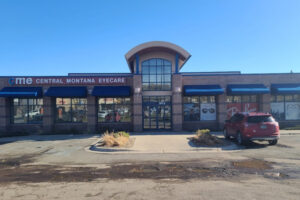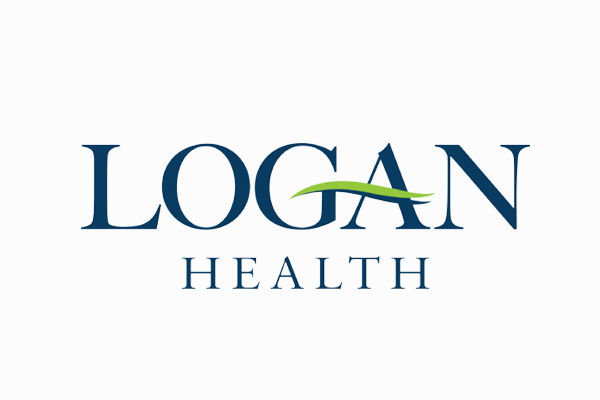The pediatric gastroenterologists at Logan Health Children’s Specialists diagnose and treat conditions of the esophagus, stomach, small and large intestine, liver, gallbladder and pancreas in patients from birth to 21 years of age. As a department of Logan Health Medical Center, we specialize in celiac disease and gluten sensitivity, Crohn’s and colitis, eosinophilic GI disorders, feeding and nutrition issues, vomiting and reflux, constipation and diarrhea, and abdominal pain.
Our Mission
We strive to be the regional leader in pediatric GI and nutrition, providing a significant level of comprehensive patient- and family-centered care to children across Montana and the region.
To do this we:
- Incorporate modern technology and therapies to provide GI care for kids.
- Treat the whole patient and have systems to educate and inform on the conditions we treat as well as diet and lifestyle modifications to improve overall health.
- Maintain an attitude of service to the children and the community, as well as the primary providers across Montana.
- Reach patients where they live and keep kids close to home with extensive outreach and education, telehealth and web-based programs, minimizing out-of-state travel.
Strengths of our Program
- Three experienced pediatric GI providers on one team
- All providers are Montana residents, not out-of-state visiting physicians
- 24/7 pediatric GI provider on-call access
- Significant outreach program throughout the state, with seven locations to serve Montana children
- A comprehensive gastroenterology program (nine adult and three pediatric GI providers)
- Fast access to care and procedures
- Comprehensive offering of pediatric GI procedures, testing and services
- Exclusively use pediatric anesthesia for all procedures, improving safety and standard of care
- A significant nutrition program
- Fully integrated with a network of pediatric specialists
- A patient- and family-oriented program
PATIENT FORMS
Patient Consent and Financial Agreement Form
New Patient Registration Form
Authorization Form
Pediatric Intake History
Frequently Asked Questions
Can my child eat prior to the office appointment?
Yes.
Do we need to do anything special to prepare my child for the appointment?
No. The first appointment is just a consultation.
Will my child have a procedure the same day we see you?
No.
Do I need to bring my child’s medical records to the appointment?
No, we like to have all records prior to the appointment. We ask that you make sure your primary care provider has faxed us all of the information. If your child had a previous GI workup, please let our office know so we can request those records.
How long is the appointment?
Your first appointment will be between 40 and 60 minutes. Follow-ups are between 20 and 30 minutes.
My child needs to be on a clear liquid diet. What is included in a clear liquid diet?
Clear liquid diets include broth, gelatin, sports drinks, Pedialyte, popsicles and clear juices (apple, pear, dye-free cranberry, white grape).
What is included in the first appointment?
The first appointment is getting to know your child’s history and symptoms. Our providers may order labs or images or may schedule a procedure at this appointment. You will be discharged with a plan of care for your child.
Conditions
ESOPHAGEAL AND SWALLOWING ISSUES
 Connecting the mouth to the stomach, the esophagus is a muscular tube through which food and liquids travel as part of the digestive process. Some children may have difficulty swallowing, food refusal, or chronic vomiting, reflux or regurgitation.
Connecting the mouth to the stomach, the esophagus is a muscular tube through which food and liquids travel as part of the digestive process. Some children may have difficulty swallowing, food refusal, or chronic vomiting, reflux or regurgitation.
The pediatric gastroenterologists at Kalispell Regional Healthcare treat esophageal and swallowing-related conditions, including:
- Chronic vomiting
- Dysphagia (difficult/painful swallowing)
- Eosinophilic esophagitis
- Feeding difficulties and poor weight gain
- Reflux and gastroesophageal reflux disease (GERD)
- Food impactions and foreign body impactions
- Gastrostomy feedings and nasogastric tube feedings
INTESTINAL ISSUES
We diagnose and treat a variety of both small and large intestinal issues. The small intestine is responsible for the continued digestion and absorption of nutrients. The large intestine is primarily responsible for the reabsorption of water from the digestive tract and the formation of stool (poop). The intestines also contain a complex variety of helpful bacteria, called the microbiota, that play a huge role in human health and disease.
Some of the intestinal issues we treat include:
- Celiac disease and gluten sensitivity
- Constipation
- Chronic diarrhea
- Food allergies and sensitivities
- Gas and bloating/distention
- Irritable bowel syndrome (IBS)
- Inflammatory bowel diseases such as Crohn’s and colitis
- Malabsorption
- Intestinal infections (bacterial and parasitic)
- Motility issues such as colonic dysmotility and Hirschsprung’s disease
- Small intestinal bacterial overgrowth
LIVER AND GALLBLADDER ISSUES
The liver is the body’s detox organ and is responsible for a number of important metabolic processes, as well as cholesterol, blood sugar and blood lipid regulation, and bile formation. The liver creates bile, which is then stored in the gallbladder for use in the digestion of dietary fat as an emulsifier. Any inflammation or irritation of the liver is called hepatitis, and can be mild or severe and even life-threatening. This can occur from viral infections, metabolic disturbances, drugs or environmental toxins.
Any abnormality in a child’s liver enzymes should be examined by a pediatric gastroenterologist to make sure it is not a sign of a serious medical condition. Jaundice (yellowing of the eyes and skin) can be a sign of serious liver or gallbladder issues and needs to be evaluated by a pediatric gastroenterologist.
Some of the liver and gallbladder issues we treat are:
- Acute and chronic hepatitis (autoimmune, infectious, metabolic)
- Gallstones and gallbladder dysfunction
- Bile duct disorders such as primary sclerosing cholangitis
- Biliary atresia
- Fatty liver disease
- Metabolic liver disorders
- Neonatal jaundice and cholestasis
NUTRITIONAL ISSUES
Good nutrition is the cornerstone of health. Most degenerative/chronic diseases are actually diseases of nutrition or are worsened by poor nutrition. With every patient we see, we review their nutritional status and how it is affecting their health.
Some nutrition-specific issues we deal with include:
- Food allergies and intolerance
- Celiac disease and gluten sensitivity
- Milk protein intolerance
- Nutritional deficiencies
- Poor weight gain (failure to thrive)
- Obesity and related issues
- Unexplained weight loss
PANCREATIC ISSUES
The pancreas is a gland in the upper abdomen primarily responsible for the body’s supply of digestive enzymes as well as several hormones such as insulin, which is required to control blood sugar levels. Issues with the pancreas can cause intense abdominal pain, vomiting and difficulty in digestion.
Some of the most common issues relating to the pancreas include:
- Cystic fibrosis
- Pancreatitis (inflammation of the pancreas)
- Pancreatic insufficiency (lack of enzymes)
STOMACH ISSUES
Abdominal pain, or tummy aches, are one of the most common complaints among pediatric patients. This can be caused by a variety of stomach or intestinal issues.
Some of the most common stomach conditions we treat include:
- Gastritis (irritation/inflammation of the stomach)
- Chronic nausea
- Gastroparesis (slow stomach emptying)
- Ulcers, peptic ulcer disease and H. pylori
- Recurrent or chronic abdominal pain
Treatments
Most procedures are performed under pediatric anesthesia to make the child comfortable and completely asleep. They do not experience pain, and often do not remember the procedure, which minimizes stress and anxiety for children as well as parents.
The following are common procedures to diagnose or treat conditions of the gastrointestinal tract, stomach and other digestive organs:
Anorectal Manometry
This is a special pressure sensor used to screen for short-segment Hirschsprung’s disease (nonfunctioning distal colon), as well as other disorders of defecation (pooping). It is an outpatient test that takes about 30 minutes.
Breath Testing
For bacterial overgrowth, or fructose or lactose intolerance, this is a simple outpatient test where the child drinks a liquid and then breathes into a tube that tests for the presence of too many intestinal bacteria, or poor absorption/digestion of certain sugars.
Capsule Endoscopy
“The camera pill” makes a movie of the intestinal tract as it passes through, looking for hidden areas of bleeding or inflammation that can be difficult to get to with standard endoscopy or colonoscopy. The pill may be swallowed or placed using endoscopy.
Colonoscopy
A flexible camera is used to examine the lower portion of the GI tract (the large intestine and the end of the small intestine, or ileum).
Esophageal Manometry
This test is used on children with swallowing difficulties to determine if the esophagus is functioning and squeezing normally. It is a 30-minute outpatient test.
Gastrostomy Tube Placement
This surgical procedure places a feeding tube for children with significant feeding issues. We use endoscopic guided surgical placement to ensure a good fit.
Impedance-pH Monitoring
A 24-hour test measures a child’s level and frequency of gastroesophageal reflux. Young patients often spend the night in the hospital for this test.
Liver Biopsy
A small needle is passed through the skin to take a small sample of liver tissue to look at under a microscope. This test is useful in diagnosing hepatitis and jaundice.
Upper Endoscopy
A flexible camera is used to examine the upper portion of the GI tract (the esophagus, stomach and duodenum). Small biopsies are usually taken to examine tissue under a microscope and look for inflammation, infection or allergy.
Meet Our Team
Regional Clinics
Pediatric gastroenterology is offered at Logan Health’s Specialty Care clinics in Bozeman, Great Falls, Helena and Missoula.

Logan Health Specialty Care – Bozeman

Logan Health Specialty Care – Great Falls

Logan Health Specialty Care – Helena

Logan Health Specialty Care – Missoula
Contact Us
To learn more about pediatric services or to refer a patient, call (406) 758-7490.
Logan Health Children’s Specialists – Pediatric Gastroenterology
202 Conway Drive, Suite 200
Kalispell, MT 59901
Phone and Fax
Phone: (406) 758-7490.
Fax: (406) 758-7080
Office Hours
Monday through Friday 8 a.m. to 5 p.m.



